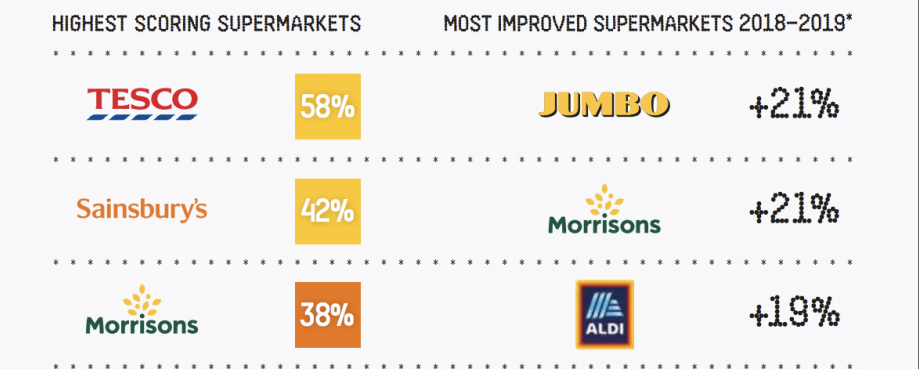
Today marks the second year of Oxfam’s Behind the Barcodes campaign, where major supermarkets are rated on how they support workers in their global supply chains.
This year, in addition to the Scorecard, Oxfam has published a new framework for corporate action on workers’ rights which takes a human rights due diligence approach and encourages supermarkets to look carefully at whether or not their business models are impacting adversely on workers and farmers.
This approach aligns closely with ETI’s emphasis on the importance of going far beyond compliance-only and is a useful addition to the ongoing debate about how best to hold retailers to account on how they treat the workers and farmers in their supply chains.
It is encouraging to see so many of ETI’s retail members improving their performance on workers’ rights in the latest Scorecard. ETI member Tesco leads the way on 58%, while Sainsbury’s and Morrison’s are also highly placed. Both Morrison’s and new ETI member ALDI South, who joined us earlier this year, have secured joint first and second place respectively at the top of the table of most improved supermarkets since last year.
But the scores in relation to promoting gender equality are again disappointing, with a significant number of retailers scoring 0% in this area. However, we know that our members are beginning to make effective use of two key pieces of gender guidance published by ETI last year - the first supporting businesses to better understand and respond to the likely gender issues in their supply chains, and the second drawing on ETI’s human rights due diligence framework and advising corporates on how to meet their responsibilities in relation to respecting women workers’ rights – and we are optimistic of improved performance in this area next year.
The patchiness of the scores, and the appearance of some very big names among the “laggards”, again reminds us of just how far there is to go in terms of leadership from the big supermarkets on workers’ rights, and the complexity of the challenges ahead. A good many household-name retail brands are evidently still on the starting blocks when it comes to responsible sourcing, and yet to get to grips with those challenges.
ETI provides training on a range of issues, from an introduction to the essentials of ethical trade, to courses on human rights due diligence, gender equality in supply chains, responsible buying, worker representation, and meeting the reporting obligations of the Modern Slavery Act.
